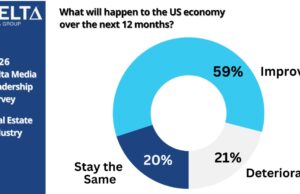Residential property prices in Berlin Real Estate have experienced their most significant drop since data collection began in 2000, and this trend extends to other international homes as well. Larger cities, in particular, have witnessed more severe declines.
According to government data, housing prices in Germany saw their most substantial decline in the second quarter, primarily attributed to high-interest rates and escalating material costs, impacting Europe’s largest economy.
The federal statistics office reported a year-on-year decrease of 9.9% in residential property prices, marking the sharpest decline since data collection commenced in 2000. Furthermore, prices fell by 1.5% in just one quarter, with larger cities experiencing more pronounced declines compared to less densely populated areas.
In prominent cities like Berlin, Hamburg, and Munich, apartment prices plummeted by 9.8%, while single and two-family house prices dropped by a significant 12.6% compared to the previous year.
For the past decade, low-interest rates had fueled a property boom in Europe’s largest real estate investment market. However, a sudden surge in interest rates and escalating construction costs has brought this prosperous run to a halt, resulting in a series of developers facing insolvency as property deals stalled and prices dipped.
The issuance of building permits for apartments in Germany declined by a substantial 31.5% in July compared to the previous year, while construction prices surged by nearly 9% during the same period.
Germany had set ambitious goals to construct 400,000 apartments annually, but these targets have proven challenging to meet.
The German Housing Industry Association, GdW, expressed alarm over the worsening situation and called for government support for construction firms. They suggested a reduction in value-added tax (VAT) from the current 19% to 7% for affordable rentals, as well as government funding with a 1% interest rate to aid companies.
A government-industry summit was scheduled for Monday to discuss the crisis. However, both GdW and the Haus&Grund owner’s association decided to boycott the summit, citing limited influence over its agenda.
The German cabinet plans to unveil an assistance package for the industry by the end of the month. This package includes initiatives to boost the construction sector by reducing regulatory and bureaucratic requirements.














